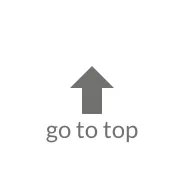In this blog, we will learn about how to add a scroll to the top button in WordPress Site.Scroll To Top ButtonAdd the scroll to top button in footer.php Note that some of the classes I am using are from tailwindcss.
<div id="footer-wrapper" class=" text-white footer-wrapper"> <footer id="colophon" class="site-footerpt-50px pb-43px lg:pt-85px lg:pb-74px"> <div class="back-to-top"> <button id="back-to-top"><svg class="w-6 h-6 transform -rotate-90" id="icon-arrow-heavy" xmlns="http://www.w3.org/2000/svg" width="24" height="24" viewBox="0 0 24 24"><path d="M13 7v-6l11 11-11 11v-6h-13v-10z"/> </svg> <span><?php esc_html_e( 'go to top', 'text-domain' ); ?></span> </button> </div></div><!-- #footer-wrapper --><?phpwp_footer();?></body></html>InViewPortAnimationCreate a JS file called in-viewport-animation.js .
$( window ).on( 'scroll', () => { this.checkElements(); this.toggleClasses(); } ); this.boundScrollEvent = true; } } toggleClasses( elem = false ) { if ( ! elem ) { if ( ! Object.keys( this.elements ).length ) { return; } Object.keys( this.elements ).forEach( ( path ) => { if ( 'skip' === this.elements[ path ] ) { return; } const elem = $( this.elements[ path ] ); const inViewport = this.inViewport( elem ); elem.inViewport = inViewport; elem.attr( 'data-in-viewport', inViewport ).toggleClass( 'in-viewport', inViewport ); this.setInlineClasses( inViewport, elem ); if ( inViewport ) { this.elements[ path ] = 'skip'; } } ); } else { const inViewport = this.inViewport( elem ); elem.inViewport = inViewport; elem.attr( 'data-in-viewport', inViewport ).toggleClass( 'in-viewport', inViewport ); this.setInlineClasses( inViewport, elem ); } } inViewport( elem ) { return this.elementBottom( elem ) > this.viewportTop() && this.elementTop( elem ) < this.viewportBottom(); } elementBottom( elem ) { return this.elementTop( elem ) + $( elem ).outerHeight(); } viewportTop() { return $( window ).scrollTop(); } elementTop( elem ) { return $( elem ).offset().top; } viewportBottom() { return this.viewportTop() + $( window ).height(); }}Debounce functionCreate a JS file called functions.js
/**
* Calls the given function after the given interval.
*
* @param {Object} func Function name.
* @param {number} wait Time in milliseconds.
*
* @return {Function} Debounced function.
*/
export const debounce = ( func, wait ) => {
let timeout;
/**
* Debounce function.
*/
return function() {
const context = this,
args = arguments;
/**
* Later function.
*/
const later = function() {
timeout = null;
func.apply( context, args );
};
clearTimeout( timeout );
timeout = setTimeout( later, wait );
};
};Scroll To Top Main JS file
Create another file called scroll-to-top.js
That’s all folks
/**
* Back to Top.
*
* @package WPR
*/
import { debounce } from "./functions";
import { InViewportAnimation } from './in-viewport-animation';
( function ( $ ) {
class BackToTop {
/**
* Constructor.
*
* @return {void}
*/
constructor() {
this.backToTopEl = $( '#back-to-top' );
this.siteFooter = $( 'footer#colophon.site-footer' );
this.window = $( window );
// The window scroll position after which we show the scroll to top button.
this.scrollOffset = 200;
if ( ! this.backToTopEl ) {
return;
}
this.addEvents();
}
addEvents() {
this.backToTopEl.on( 'click', this.scrollWindowToTop );
this.window.on( 'scroll', () => debounce( this.toggleScrollToTopBtnVisibilty(), 1000 ) );
new InViewportAnimation();
}
/**
* Toggle scroll button visibility.
*
* When the scroll position is large than scrollOffset
* we will show the scroll to top button,
* else hide it.
*
* @return {void}
*/
toggleScrollToTopBtnVisibilty() {
// If the scroll position is larger than scrollOffset.
if ( window.scrollY > this.scrollOffset ) {
this.backToTopEl.addClass( 'is-visible' );
const top_of_element = this.siteFooter.offset().top;
const bottom_of_element = this.siteFooter.offset().top + this.siteFooter.outerHeight();
const bottom_of_screen = $( window ).scrollTop() + $( window ).innerHeight();
const top_of_screen = $( window ).scrollTop();
if ( ( bottom_of_screen > top_of_element ) && ( top_of_screen < bottom_of_element ) ) {
const diff = bottom_of_screen - top_of_element;
this.backToTopEl.parent( '.back-to-top' ).css( 'bottom', ( 20 + diff ) + 'px' );
} else {
this.backToTopEl.parent( '.back-to-top' ).css( 'bottom', '20px' );
}
} else {
this.backToTopEl.removeClass( 'is-visible' );
}
}
/**
* Scroll window to top.
*
* When the back to top button is clicked scroll to top position.
* @return {void}
*/
scrollWindowToTop() {
window.scrollTo( {
top: 0,
behavior: 'smooth'
} );
}
}
new BackToTop();
} )( jQuery );Scroll To Top CSS
.back-to-top {
display: none;
@screen lg {
position: fixed;
bottom: 20px;
right: 0;
align-items: center;
margin: auto;
height: 140px;
width: 100px;
justify-content: center;
z-index: 3;
display: flex;
}
button {
display: flex;
flex-direction: column;
align-items: center;
color: #d5d7d8;
cursor: pointer;
font-style: normal;
font-weight: 400;
font-size: 12px;
line-height: 137.74%;
border-color: transparent;
background-color: transparent;
opacity: 0;
-ms-user-select: none;
user-select: none;
-moz-user-select: none;
-khtml-user-select: none;
-webkit-user-select: none;
-o-user-select: none;
transition: all .5s ease;
transition: color 0ms;
&.is-visible {
opacity: 1;
animation: fadein 1s;
-moz-animation: fadein 1s;
-webkit-animation: fadein 1s;
-o-animation: fadein 1s;
}
svg {
filter: brightness(0) saturate(100%) invert(100%) sepia(1%) saturate(1993%) hue-rotate(169deg) brightness(99%) contrast(70%);
}
&:hover {
color: grey;
background-color: transparent;
svg {
filter: brightness(0) saturate(100%) invert(46%) sepia(9%) saturate(10%) hue-rotate(328deg) brightness(92%) contrast(85%);
}
}
}
}
That’s all folks

Leave a Reply